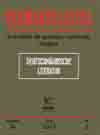Zentraleuropa als „lebendiger Organismus“. Viktor Bauers Zivilisationskritik im Kontext der Mitteleuropa-Konzeptionen der Zwischenkriegszeit
Central Europe as “Living Organism”. Viktor Bauer’s Critique of Civilization in the Context of the Central European Conceptions between the Wars
Author(s): Milan HorňáčekSubject(s): Cultural Essay, Political Essay, Societal Essay
Published by: AV ČR - Akademie věd České republiky - Slovanský ústav and Euroslavica
Summary/Abstract: In the period between the Wars, Brno was considered one of the most important centres of the Central Europe Movement not only in the Czechoslovak Republic: Opposite to the Central Europe Institute for Promotion of the Economical and Cultural Convergence in Brno and personalities like Elemér HANTOS who have already been a subject of many researches, the geopolitical and culture-critical work of the entrepreneur, patron and geopolitician Viktor BAUER remained practically unnoticed, although he belongs, together with Erwin HANSLIK and Edmund KÜTTLER, to the founders of the Institute for the Study of Culture in Vienna. Besides, in the period between the Wars, he maintained lively contacts with the key figures of the Viennese social life (among others with Karl KRAUS). Through publishing his two most famous works “Zentraleuropa. Ein lebendiger Organismus” (Central Europe. A Living Organism, 1936), Bauer submitted his own conception of Central Europe that thanks to its anchorage in the “organologic” thought of the first third of the 20th century and also through its culture-critical features and explicit criticism of the space conception of National Socialist ideology contrasts strongly with the majority of Central Europe theories of the 1920’s and 1930’s. The focus of this article is BAUER’s Central Europe conception and its context regarding the history of ideas and science.
Journal: Germanoslavica
- Issue Year: XXIV/2013
- Issue No: 2
- Page Range: 18-34
- Page Count: 17
- Language: German

